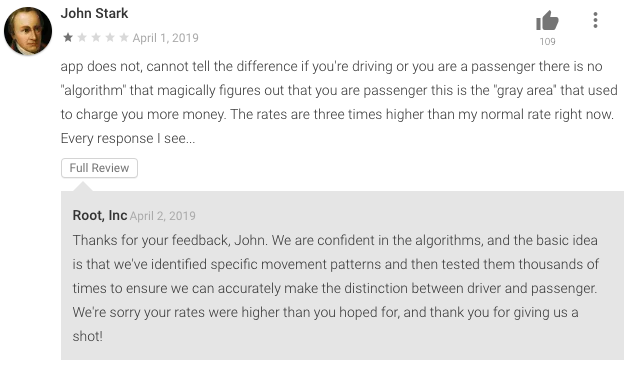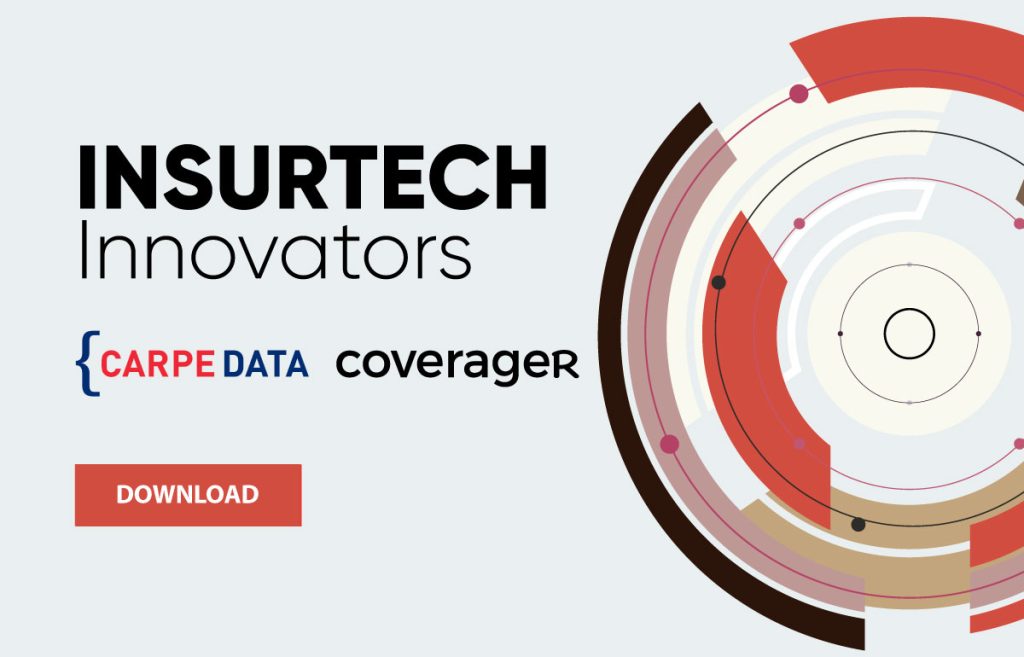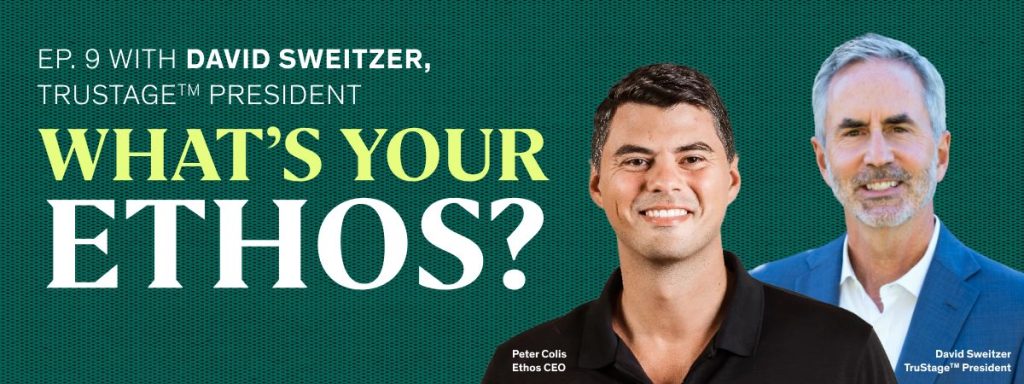Psychology 101
Before joining Coverager and learning about the world of insurance, Shefi asked me what an insurance company needs to do to win. My response was simple – either offer the best price or have the best distribution. Clearly, I was wrong.
* * *
My wife made stuffed peppers for the first time last week. I’ve been encouraging her to connect with my roots by cooking Israeli food ever since our son was born. Nowadays, she masters Schnitzel, Shakshuka, and my mom’s famous rice and meatballs.
My mom is an amazing cook and a tough critic. Back in the day, she’d ask me to taste the dishes she prepared to see if anything was missing. This was a task I didn’t take lightly and I believe that’s where I picked up my critique skills (and impeccable taste). The challenge with stuffed peppers is that you can’t really taste them to see if they are cooked and seasoned properly. It’s one of those dishes where you must follow a strict recipe, but sometimes something basic like the size of the peppers can impact the end result. Awareness is both a blessing and a curse. Obviously, telling your wife the rice was undercooked wasn’t a wise move but we are who we are.

* * *
Reuters announced last week that Goldman Sachs was hired to lead Root’s IPO, which could value the company at around $6 billion. From a business point of view, Root is just like any other car insurer that allows consumers to purchase insurance online. So, what was it that made Root IPO worthy? Taking a page from Lemonade by applying the right tactics and not paying attention to criticism.
In a Forbes video, Root’s co-founder and CEO Alex Timm shared a few insights into the company’s early days. “Building Root was like a treasure map – when you start a journey, you may have a good idea of where you want to go, you’ve got a rough direction, but not everything is on the map, no map is perfect. And along the way you can find hidden gems, you can also run into storms. The success of your journey is based on how quickly and how nimbly you can react to all of those things you find along the way. That’s really what we found as a company.” He went on to share specifics. “When we launched the product it was just pure nerves. You sort of have all this excitement, you’re finally gonna launch the product, you’re finally gonna see what consumers do, and I’ll be honest, nothing happened. Crickets.”
When nothing happens you start to doubt yourself and that usually presents you with three options – quit, pivot, or keep going. Timm kept going. “I think I doubted myself the entire time. It’s certainly a conflict. And sometimes in those really hard times, all I could tell myself was just don’t quit. As soon as I decided I won’t quit, then that was just an unuseful emotion.”
Shefi likes to say that perception is reality. For years, Root has made an effort to be perceived as a different, fairer car insurance company. For example, the company communicates to consumers that driving behavior makes up 35% of their rate. Well, here’s a math question for you: If your monthly rate with Root was $100 and at renewal, the monthly premium increased to $150 without the company citing any driving behavior issues, does driving behavior still make up 35% of your rate? The other issue is around Root’s ability to accurately measure driving behavior.
In a post published last year, we highlighted the accuracy challenges of mobile-based telematics. Back then, the company claimed that it can “accurately make the distinction between driver and passenger.”

But even after admitting to Coverager that sometimes the data it collects is “imperfect,” Root still paints a perfect picture with a variety of responses.
So, what do you gain from deceiving car insurance customers? A pre-IPO valuation that’s ~4x higher than the original target price of Lemonade, the poster child of insurtech.
Insurance is a simple business from a consumer’s point of view; unlike a car, for instance, where the price point, safety, gadgets, colors, cargo space, and many other aspects impact one’s decision. The average insurance consumer isn’t evaluating a company’s combined loss ratio or its policy admin system; a good price, decent claim reviews and average coverage will do. And because there aren’t many features for your standard insurer to play with, the good ones are those that zero in on some aspects. This bit was realized by both Lemonade and Root, yet one chose to stay pretty while the other was willing to get ugly.
In 2018, Daniel Schreiber credited Lemonade’s early success to ignorance. “We were able to think about stuff at a foundational, fundamental level,” he said. With 2,538 Property & Casualty insurance companies in the US, I’m not so sure you need to be a genius to start an insurance company but I digress. I’m not a big believer in ‘this is what made us successful’ stories, and what Schreiber should have said is that Lemonade was anything but ignorant.
When Lemonade launched, they looked at the two most important consumer-facing aspects of insurance – price, and claims. They led with a specific price and stood behind it to improve conversion rates and they automated claims (in some cases) for brand-building and marketing. Lemonade’s founders know that actions speak louder than words of a behavioral economist and these actionable tactics helped the company stand out. But since these tactics can only be applied to a simple product like renters insurance (in contrast, it took Lemonade 12 business days to inform me of my pet’s pre-existing conditions after I purchased their pet insurance), the question is, how far do they go?
Lemonade has gone far. Instead of going after the US homeowners market, Lemonade went all the way to Germany, the Netherlands, and France to increase its pool of young renters (we predicted this in 2018). The company increased coverage limits as a way to increase premiums, and when it was finally forced to increase rates, even a 20% hike isn’t all that bad to some of us. And now Lemonade has entered the pet insurance market, where they promote cheaper prices than their rivals, but that’s as far as they can go with their strategy of being crowd-pleasers.
A 20% increase. pic.twitter.com/9P53qLmthd
— Avi Ben-Hutta (@avibenhutta) September 15, 2020
At times when an IPO is a target for some, Lemonade’s restrictive approach/strategy was enough to carry them all the way to the end zone. Root, on the other hand, is applying a strategy their competitors will find hard to imitate.
The madder Hulk gets, the stronger Hulk gets. With Root, the madder customers get, the stronger Root gets. The company is seeing an increase in negative reviews according to our analysis of its App Store written reviews.
| Year | Count of Negative Reviews | Percentage of Negative Reviews |
|---|---|---|
| 2018 | 421 | 41 |
| 2019 | 510 | 47 |
| 2020 | 338 | 51 |
On the other hand, here are Lemonade’s numbers despite the insurer having more policyholders:
| Year | Count of Negative Reviews | Percentage of Negative Reviews |
|---|---|---|
| 2018 | 46 | 20 |
| 2019 | 56 | 17 |
| 2020 | 68 | 33 |
Obviously, car insurance generates more reactions from consumers compared to renters insurance as the product is more costly and claims can get messy. This brings us to the ultimate highlight – marketing spend. In one of our podcasts, Shefi said that selling renters insurance is more difficult than selling car insurance. According to Lemonade’s S-1 filing, in 2019 the company spent $89.1 million on sales and marketing. And Root’s marketing spend? We recently reached out to the company to confirm their over $60 million marketing budget as specified in this job ad, but haven’t heard back. However, according to a company filing, through September 30, 2018, expenses incurred in the connection with acquiring new insurance business, “including such items as marketing or referral fees,” were charged to underwriting expenses as incurred. Beginning October 1, 2018, the company entered into a producer agreement with Root Insurance Agency, LLC, to provide advertising, marketing and customer services. As compensation for these services, the company pays a commission based on direct written premium and in 2019 it paid RIA $45,094,234, and during the six months ended June 30, 2020, it paid $30,579,565 which puts it on track for a budget of over $60 million.
| 2018 DPW | 2019 DPW | 2019 Marketing Budget | |
|---|---|---|---|
| Lemonade | $47M | $116M | $89.1M |
| Root | $106M | $451M | $45.1M |
Potentially saving hundreds of dollars on an expensive product that’s required by law is a better driver than buying a mostly non-compulsory insurance product from a Certified B Corp, and Root is taking advantage by aggressively promoting a compelling, yet deceiving message.
For a company with a ~0.2% market share as of 2019, there’s more of an upside than a downside to this strategy as Root is still a relatively unknown player. And even negative online reviews are unlikely to deter many from passing on possible savings, even if the benefit comes with an expiration date. This, along with Timm’s never-quit mentality and willingness to get dirty is why Root is about to become the most valuable insurtech.
Last year, Harvard University began teaching Lemonade to its students. In reality, a psychologist (and Coverager) would have been able to give you better insights because when you’re dealing with a rarely differentiated product that’s sold to a generally indifferent consumer, extreme measures are necessary.
In Numbers 20 there’s the story of Moses striking the rock to get water. God originally commanded Moses to speak to the rock and because Moses chose to strike it instead, he was punished.
וַיְדַבֵּר יְהוָה, אֶל-מֹשֶׁה לֵּאמֹר. קַח אֶת-הַמַּטֶּה, וְהַקְהֵל אֶת-הָעֵדָה אַתָּה וְאַהֲרֹן אָחִיךָ, וְדִבַּרְתֶּם אֶל-הַסֶּלַע לְעֵינֵיהֶם, וְנָתַן מֵימָיו; וְהוֹצֵאתָ לָהֶם מַיִם מִן-הַסֶּלַע, וְהִשְׁקִיתָ אֶת-הָעֵדָה וְאֶת-בְּעִירָם. וַיִּקַּח מֹשֶׁה אֶת-הַמַּטֶּה, מִלִּפְנֵי יְהוָה, כַּאֲשֶׁר, צִוָּהוּ. וַיַּקְהִלוּ מֹשֶׁה וְאַהֲרֹן, אֶת-הַקָּהָל–אֶל-פְּנֵי הַסָּלַע; וַיֹּאמֶר לָהֶם, שִׁמְעוּ-נָא הַמֹּרִים–הֲמִן-הַסֶּלַע הַזֶּה, נוֹצִיא לָכֶם מָיִם. וַיָּרֶם מֹשֶׁה אֶת-יָדוֹ, וַיַּךְ אֶת-הַסֶּלַע בְּמַטֵּהוּ–פַּעֲמָיִם; וַיֵּצְאוּ מַיִם רַבִּים, וַתֵּשְׁתְּ הָעֵדָה וּבְעִירָם. וַיֹּאמֶר יְהוָה, אֶל-מֹשֶׁה וְאֶל-אַהֲרֹן, יַעַן לֹא-הֶאֱמַנְתֶּם בִּי, לְהַקְדִּישֵׁנִי לְעֵינֵי בְּנֵי יִשְׂרָאֵל–לָכֵן, לֹא תָבִיאוּ אֶת-הַקָּהָל הַזֶּה, אֶל-הָאָרֶץ, אֲשֶׁר-נָתַתִּי לָהֶם.
And the Lord spake unto Moses, saying, Take the rod, and gather thou the assembly together, thou, and Aaron thy brother, and speak ye unto the rock before their eyes; and it shall give forth his water, and thou shalt bring forth to them water out of the rock: so thou shalt give the congregation and their beasts drink. And Moses took the rod from before the Lord, as he commanded him. And Moses and Aaron gathered the congregation together before the rock, and he said unto them, Hear now, ye rebels; must we fetch you water out of this rock? And Moses lifted up his hand, and with his rod he smote the rock twice: and the water came out abundantly, and the congregation drank, and their beasts also. And the Lord spake unto Moses and Aaron, Because ye believed me not, to sanctify me in the eyes of the children of Israel, therefore ye shall not bring this congregation into the land which I have given them.
If Schreiber had been Moses, he would have charmed the rock with fancy words and aligned interests. But if Timm had been Moses, he would have run over the rock with a bulldozer and gone all the way to the promised land.









